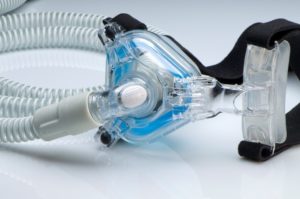 Between jet lag and sleeping in an unfamiliar bed, it can be difficult to feel well-rested when you’re away from home. The last thing you need is sleep apnea symptoms to add to the problem. You don’t have to worry about tossing and turning at night. You can doze off quickly and breathe easily by following 6 simple tips when traveling with sleep apnea.
Between jet lag and sleeping in an unfamiliar bed, it can be difficult to feel well-rested when you’re away from home. The last thing you need is sleep apnea symptoms to add to the problem. You don’t have to worry about tossing and turning at night. You can doze off quickly and breathe easily by following 6 simple tips when traveling with sleep apnea.
1. Check Airline Guidelines
If you’ll be heading out of town by plane, you don’t want any unnecessary delays when traveling through airport security. Many airlines have strict regulations about what can go on an airplane. While you shouldn’t have any complications, check the airline’s guidelines a couple of weeks before your flight.
2. Carry Your Prescription
Nothing is worse than your luggage getting lost, except if your CPAP is in it. A bad situation can get worse if you aren’t prepared. Carry a copy of your prescription with you just in case the worst should happen. You will also have additional information about your device if there are any questions when going through security.
3. Check the Power Supply
If you’re traveling to another country, not all use the same power supply as the U.S. It’s best to bring a universal power adaptor to ensure you can plug in your CPAP. It’s also a good idea to pack an extension cord in case there’s no outlet near the bed.
4. Pack Carefully
Ideally, you’ll want to pack your CPAP machine in your carry-on. You can keep a close eye on it to prevent it from getting lost or damaged in the shuffle from point A to point B. Take the time to pack the machine carefully in a protective case.
5. Don’t Forget Any Cleaning Products
You wouldn’t stop brushing and flossing your teeth just because you’re not at home, so don’t forget to pack your cleaning supplies. Make sure any cleaning products you take abide by the airline’s size and quantity requirements.
6. Make the Switch to an Oral Appliance
You can avoid the hassle and inconvenience of a CPAP by making the switch to an oral appliance. Patients with mild-to-moderate cases of obstructive sleep apnea can be candidates for the small device. It is customized to fit your mouth like a glove while holding your tongue or jaw in a better position to keep your airway open. You won’t have to worry about cords, hoses, or bulky machines. Instead, your sleep apnea treatment can fit right in your pocket.
You can sleep peacefully, knowing you’ve prevented any complications from interrupting your travel plans. Ask your sleep specialist if an oral appliance is right for you.
About Dr. Jon Kirlough
Dr. Kirlough achieved his dental degree from The Ohio State University College of Dentistry and completed advanced education in general dentistry and sleep medicine. If you’re ready to cut ties with your CPAP, contact our office today to request a consultation for oral appliance therapy.


